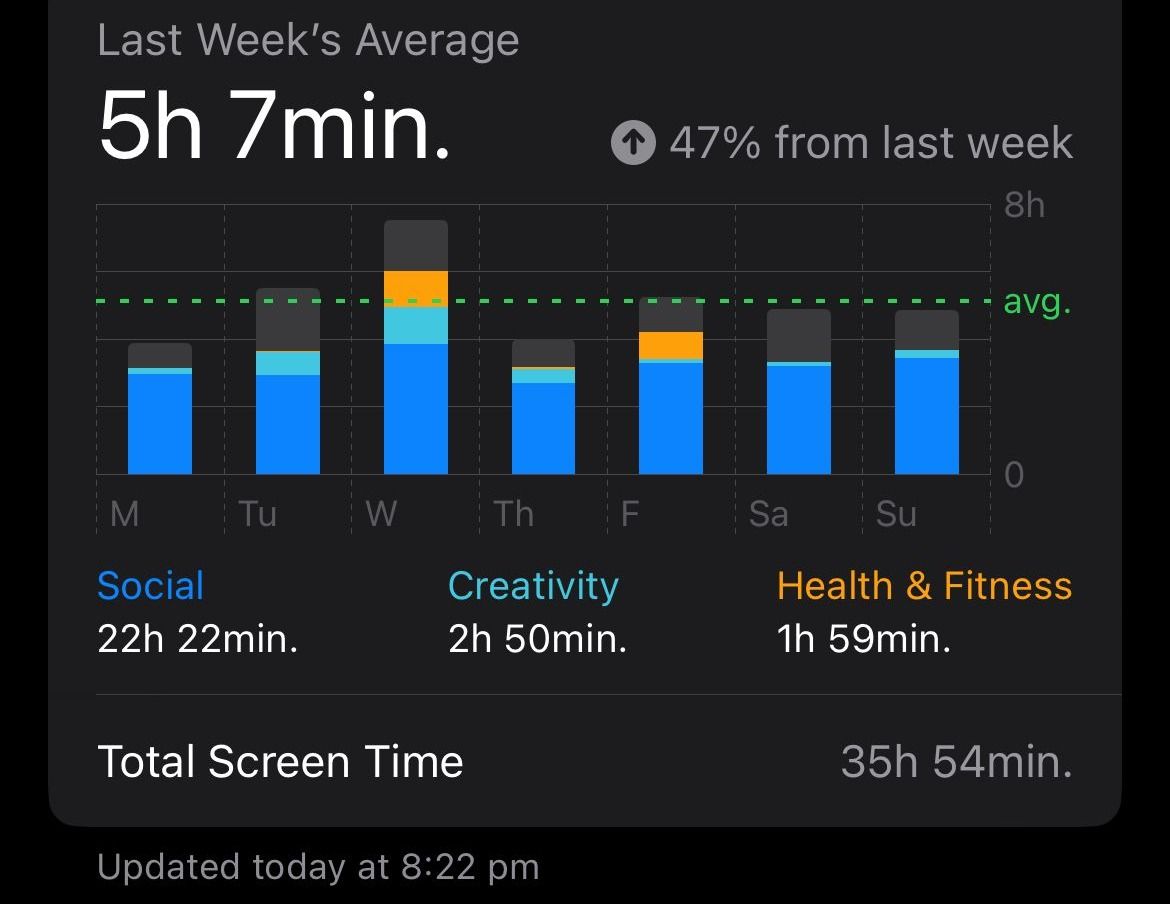Death by the gen-z social media era
The daily ‘Screen Time’ notification popped up on my iPhone earlier this week which I ignored through my usual action of removing the notification from my screen. Ignorance is bliss right? But it had me reflecting on how much time I had really been spending on not just my phone, but on social media. I was both shocked and horrified when I saw that last week’s total screen time was 35 hours and 54 minutes with 16 hours spent on Instagram and 4 hours on TikTok. That is basically a whole damn working week.

It is undeniable how beneficial and impactful social media, and technological innovation generally, has been in connecting millions of lives from all over the world. How privileged are we to be able to evade the limitation of physical space in engaging with people from all walks of life and learning something new with a quick search on Google or YouTube. But with social media, particularly TikTok, Instagram and Facebook, how much time would you say you spend on it a day? Do you doom scroll for hours in bed to ignore the feeling of dread for the next working day? Do you spend your time on the toilet watching TikTok, listening to the same video on repeat as you wipe (I know you all have been there and done that)? Do you contribute to the algorithm by watching a fake news video on Facebook that your conservatist relative shared?
What these all have in common is the death of our intellectual curiosity.
That is not to say that social media is the devil and we must all riot against the machine, but as we should with all aspects of our life, we should be intentional and critical about what we digitally consume. Our brains have been accustomed to obtaining information in a short period of time, shaped by platforms that are known for sharing short-form content which has essentially lead us to having such short attention spans when we know the next video might be funnier, more informative, or just a video we might be more interested in.
Personally, I love watching YouTube videos and have since I was a pre-teen, using it to sing along to karaoke-version songs to Taylor Swift and Christina Aguilera whilst having to intermittently pause to allow the video to load on dial-up Internet. Then, as I became a teenager and my intellectual curiosity grew, I used Youtube as a way to learn about societal injustices, cultural traditions and other ways of living through ‘vlogs’ that wasn’t taught in school. This was before the era of Instagram reels, Facebook videos and TikTok.
But the content that we commonly see now are memes, news condensed into 1-minute snippets, and short opinion segments from complete strangers. There is also the lifestyle influencer sharing a ‘productive’ day in their life consisting of iced coffee, pilates and running errands. Or we have the contentpreneurs who went viral with their ‘I made six figures by selling a digital product and you can too’ and now live the digital nomad life. One thing that I have still retained of my teenage intellectual curiosity is the awareness of not believing everything you see. However, if you asked me to sit down and do anything that did not involve going on my phone or laptop to use social media, I could confidently tell you that it would not be possible.
If it wasn’t for starting law school and the requirement to be able to think critically, I don’t think I would have regained my intellectual curiosity.
Until next time,
Liselle
